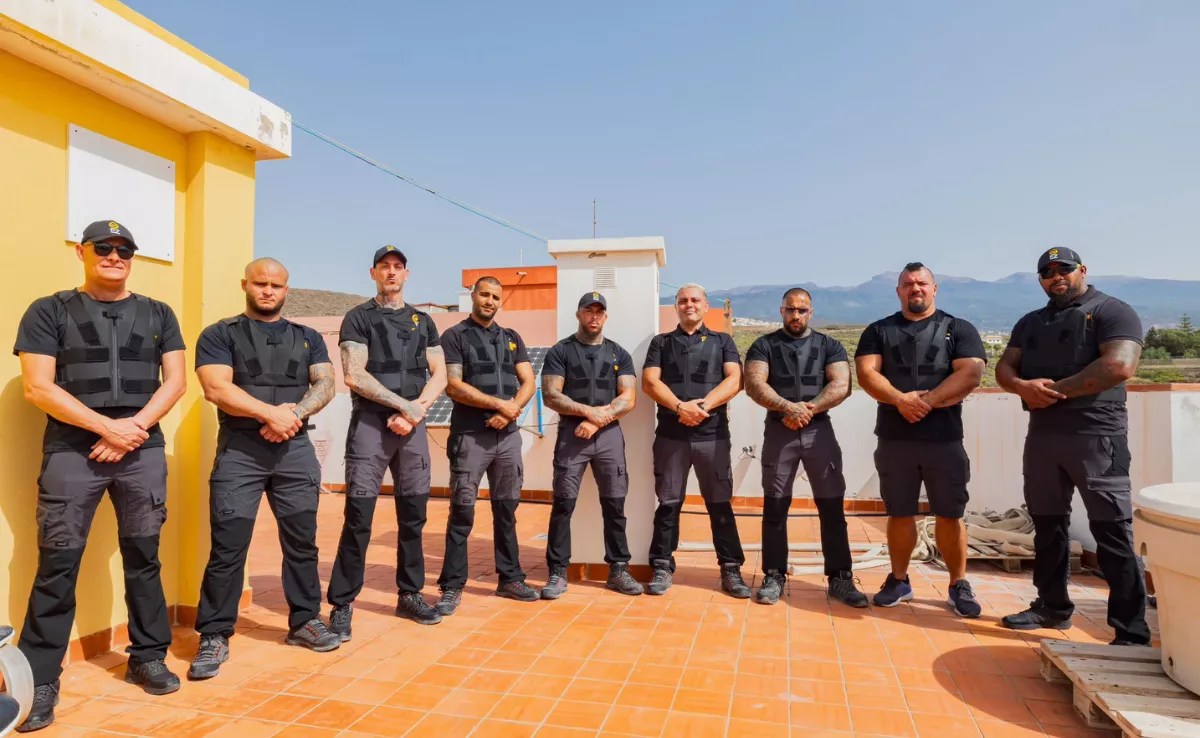
The President of the Cabildo of Tenerife, Rosa Dávila, declared this Wednesday that the regulations regarding the ascent on foot to the peak of Teide will become effective next Friday, allowing a total of 300 individuals per day split into three time slots: from 09:00 to 16:00 hours; from 16:00 to 00:00 hours; and from 00:00 to 09:00 hours.
During a press briefing to inform on the decisions made by the Government Council, alongside Vice President Lope Afonso, she specified that the path will have support staff from the national park available round the clock, every day of the year, and that hikers must register via the Tenerife ON application.
Tourism companies engaged in active pursuits and registered mountaineers will enjoy a separate allocation, comprising 20% of the total spots. Those who fail to adhere to the regulations will be subject to a fine of €600 and will be liable for the costs of any potential rescue, which could range between €2,000 and €12,000.
With this measure, which the Cabildo’s president, Rosa Dávila, acknowledges could be seen as “controversial”, the intention is to enhance safety within the National Park and to prevent overcrowding, as it will always be clear how many individuals are present in this safeguarded natural area, as stated by the Cabildo.
This declaration follows a weekend during which rescues were conducted from November 16-18. More than 130 individuals attempted to ascend the mountain despite the closure of the cable car due to adverse weather conditions, including a wind alert and forecasts for strong winds and storms. Some of these hikers, as detailed by the Cabildo, even wore shorts despite the low temperatures and recommendations against visiting the area.
The initiative unveiled this Wednesday underscores the necessity of ensuring safety given the unique weather conditions characteristic of this mountainous terrain, as well as the essential requirements for suitable equipment to undertake the climb, added Rosa Dávila.
Consequently, electronic registration will be mandatory, and access to the trails will be subject to prior communication or authorisation via the reservation centre of the aforementioned platform.
Once the reservation or permit document has been issued, it should be printed or saved on a mobile device and must be carried for verification by the patrolling authorities present at the trail entrance control points, as stated by the Cabildo.
The trails under controlled access will include trail 7 (Montaña Blanca-Pico del Teide), trail 11 (Mirador de la Fortaleza), trail 23 (Regatones Negros), and trail 9 (Teide-Pico Viejo).
Mandatory Equipment
Furthermore, as essential gear, users, hikers, and mountaineers must possess minimum mandatory equipment which includes suitable mountain footwear, a coat, a thermal blanket, water, a mobile phone with a charged battery, and a headlamp. Upon request from Cabildo staff, this equipment must be presented; failure to do so will prohibit the ascent.
In addition, monitoring and oversight will be conducted by park personnel around the clock at designated checkpoints to enforce adherence to the regulations and stipulations, including both necessary equipment and vital authorisations.
Regarding the schedule, there will be a visitor capacity of one hundred individuals per segment, from 9:00 a.m. to 4:00 p.m.; from 4:00 p.m. to 12:00 a.m., and from 12:00 a.m. to 9:00 a.m.
This arrangement may alter based on its execution, stated Rosa Dávila, who also mentioned that weather conditions will be taken into account. Therefore, in a typical scenario, which is without any alert signals, users will be guided by the regular conditions of the visit, which include obtaining mandatory authorisation for a designated time slot alongside a verification control of the equipment at the trail entrance.
In circumstances of adverse weather phenomena affecting the scope of the aforementioned trails within Teide National Park—such as rain, snowfall, high winds, or storms—public access will be restricted between 4:00 p.m. and 9:00 a.m. as long as a pre-alert remains in effect, thus preventing night hours from being spent in the mountains.
During states of alert and high alert, public access will be entirely prohibited, and trails will be closed 24 hours a day as long as the situation persists.
Additionally, in adverse weather conditions, even in the absence of alerts or warnings, particularly due to the presence of ice, snow, wind, and frost or any other circumstance rendering paths impracticable or lacking minimum safety guarantees for navigation to the peak of Teide, the National Park Directorate may restrict access to said trails, closing them for as long as deemed necessary.
This measure includes denying access to individuals who have previously obtained permission and/or authorisation.
Under the conditions specified, federated climbers and active tourism enterprises will receive special and differentiated treatment. The former must adequately justify their capabilities, possess appropriate and precise resources, and may request a special permit when the terrain is covered with ice or snow.
As for active tourism companies, they must be legally established and recognised by the regional authority, and have authorised mountain guides qualified to conduct tours in the high mountains of Teide National Park under the stipulated conditions.
There will be no exceptions regarding the compulsory registration of individuals wishing to access the Pico, as “everyone must meet the requirements for authorisation and necessary equipment,” the island president has emphasised.
In this context, he added that currently, the peak of Teide (3,718 metres) can be reached from La Rambleta, situated at 3,555 metres high, via the Telesforo Bravo trail, and those intending to follow this path must secure the relevant permit, as has been the case until now on the website www.volcanoteide.com/es.
Furthermore, the governing council of the Tenerife Cabildo has approved an investment exceeding one million euros today to replace more than 2,000 signage indicators within the National Park that have deteriorated over time or due to the 2023 fire, ensuring they are uniform and include indications in multiple languages.














